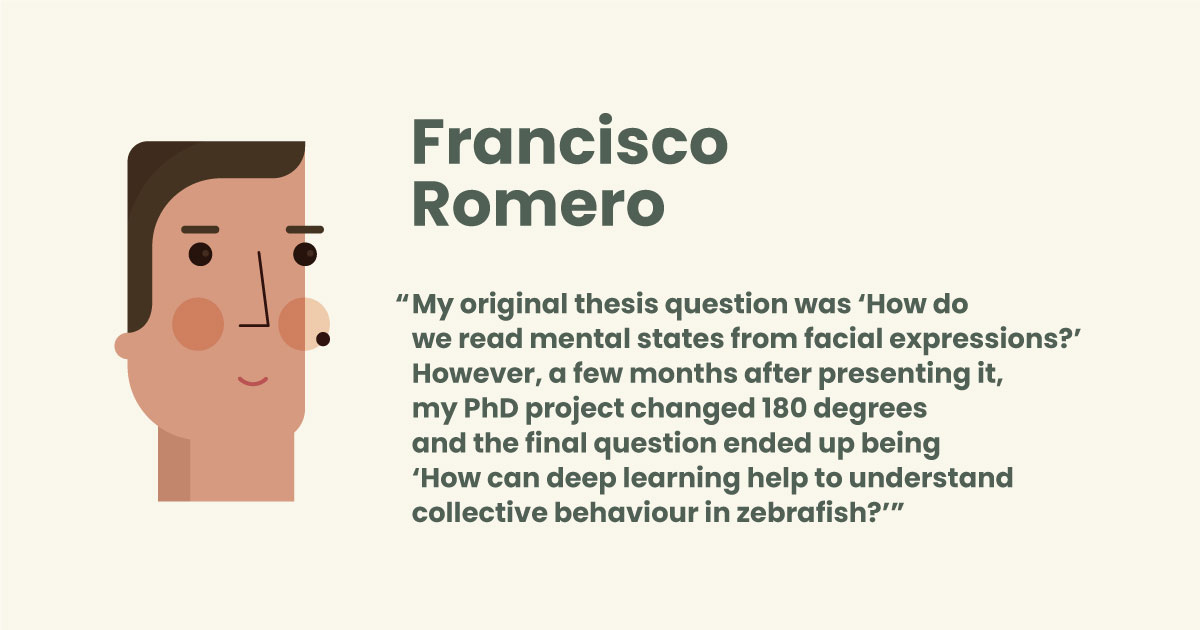17 March 2022
10 March 2022
A question of control
We've all been there… Trying to reach an actual person when calling customer support, getting a baby to fall asleep, looking for something good to watch on TV… At some point, you invariably find yourself wondering -- do my actions actually make a difference?
03 March 2022
Tiny research hero now fully mapped
Fruit flies have played a leading role in biological research for over a century, ever since Thomas Hunt Morgan used these tiny insects to discover that genes reside on chromosomes, essentially uncovering the mechanical basis of heredity. Many scientists followed in Morgan’s footsteps and several went on to win a Nobel Prize for their groundbreaking discoveries using this small model organism.
23 February 2022
Ana Luísa Correia awarded 2022 Pfizer Research Prize
Ana Luísa Correia joined the CF in December 2021. Prior to that, she worked for several years at the Basel University Hospital in Switzerland. During her stay there, she made breakthrough discoveries with potentially important therapeutic implications. She intends to pursue this line of work at the CF.
10 February 2022
Getting Excited Twice
Learning new motor skills is a critical aspect of our lives. From playing the piano to riding a bike, it would be difficult to imagine life without it. But how does the brain do it? A new study published in the scientific journal Science Advances sheds light on a newly discovered brain circuit that may endow us with this remarkable ability.
06 January 2022
2021 Champalimaud Research Graduates

What was your thesis question and what did you find?
My original thesis question was ‘How do we read mental states from facial expressions?’ However, a few months after presenting it, my PhD project changed 180 degrees and the final question ended up being ‘How can deep learning help to understand collective behaviour in zebrafish?’ We found that deep learning is a very po
30 December 2021
Zoom-In on Champalimaud: The Reunion
But there’s more! During the interview, they also told us about great places to visit, cool music, fascinating podcasts and other discoveries they made this year. We couldn’t fit everything in the final cut, so we’ve listed their top recommendations below.
To view all 2021 individual episodes, tune in to the Zoom-In on Champalimaud YouTube playlist.
22 December 2021
Follow your nose
Smell has the power to transport us across time and space. It could be the sweet fragrance of jasmine, or the musty scent of algae. Suddenly, you are back at your childhood home, or under the burning sun of a distant shore.
This association between smells and places seems to be a deeply embedded aspect of human cognition. But how are the two linked in the brain? A study published today (December 22nd) in the scientific journal Nature presents a potential explanation.
21 December 2021
Biotech Company Co-Founded by Champalimaud Foundation Scientist Receives Prestigious European Innovation Council Grant
A series of landmark studies by Henrique Veiga-Fernandes, Director of the Champalimaud Cancer Research Programme, led to the formation of LiMM Therapeutics in 2018. The young company is geared towards generating first-in-class therapeutic products for cancer, inflammatory, and metabolic diseases.
09 December 2021
Daniel McNamee
Once in a while, we hear that the Physics world is overjoyed with the discovery of a new elementary particle, often decades after theoretical models have predicted its existence. But Neuroscience news has a different stroke, with novel insight mainly emerging through experiments. Can theoretical approaches also provide testable predictions about how the brain works?
